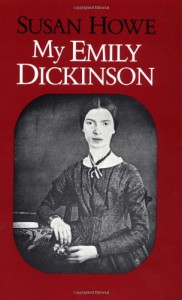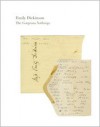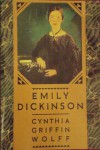Currently reading
Saints in Art
The Gorgeous Nothings: Emily Dickinson's Envelope Poems
Selected Poems
Emily Dickinson
Lies My Teacher Told Me : Everything Your American History Textbook Got Wrong
Gone with the Wind
My Emily Dickinson
 Boy howdy, do I feel like an idiot.
Boy howdy, do I feel like an idiot.Not one reviewer here says anything along the lines of, "Um, guys – what just happened?"
Not one reader I could find rated it lower than 3 stars – and the vast majority of reviewers give it four or five, and swoon in their reviews.
So I guess it's just me.
I'm the dork who feels as if I stumbled into someone else's drug trip when I thought I was supposed to be reading a book about a poet and her work.
I thought I was reasonably literate (for a civilian), but reading this book felt like having books flung at my head by an invisible assailant.
If you know me, you know I'm all about the Post-Its when I read. And my library copy of My Emily Dickinson is stuck with its fair share – but all the passages I found worth hanging onto are quotations from other people's works.
The only bits I marked that Susan Howe actually wrote are things I wanted to mention here because I disagree with them strenuously. "Dickinson means this to be an ugly verse," Howe says at one point, because apparently being a poet herself means having permission to speak on behalf of a long-dead writer. (Hint: NO.)
And "Elizabeth Barrett Browning...failed as a poet herself."
Excuse me? EBB wrote poems even non-poetry lovers can admire:
If thou must love me, let it be for nought
Except for love's sake only.
Does that sound like the beginning of a failed sonnet?
Elizabeth Barrett Browning wrote beautifully, and her writing is remembered – people quote her all the time. (She wrote the sonnet that begins, "How do I love thee? Let me count the ways.") By any reasonable standard, she did NOT fail as a poet.
So I couldn't keep up with most of Howe's writing here, and I didn't like the few opinions I could understand.
I feel like a weirdo and an idiot; but other than being glad to see some of the quotes Howe passed along from other writers, I did not enjoy this book, nor did I get much out of it.
Back to the library it goes, and on to the next book about Dickinson I go.








